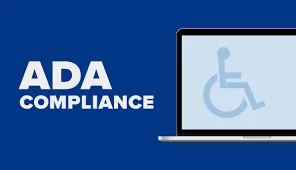ADA or the Americans with Disabilities Act came out in 1990, and it specifies that any public access utility should be compliant with the special accessibility needs of disabled people. So, what if you own a business website that is meant to share information or sell products or services to customers? Yes, it should also be compliant with the ADA needs.
The accessibility requirements of ADA had been carefully defined to make sure that people with disabilities have normal access to information and services like others. Here, the definition of information not only limits to the traditional utilities but also covers the modern-day websites. All the entities in the areas like employment, communication, public accommodations, transportation, and services offered by governments should be compliant with the accessibility rules of ADA. Any organization which uses online websites and mobile apps for customer interactions should also comply with the ADA accessibility regulations.
ADA Compliance explained by AccessiBe
ADA specifies the info to be included in self-evaluation, how to conduct the same, and who all within an organization should be conducting it. ADA does not specify the type of evaluator, but it can be an internal committee or a special task force that assesses ADA compliance. It is also mandated that the info collected through self-evaluation be kept confidential. AccessiBe offers different tools and support for the audit of ADA compliance and also to ensure compliance of your website through various developmental approaches.
At the baseline, ADA regulations cover various situations and various modes of accommodations. For example, suppose a business is located on the top floor of a building that only has a standing elevator. In that case, you may have to make arrangements to set up wheelchair-compliant transportation to serve differently-abled employees. You may also have to provide wheelchair ramps or wheelchair-friendly elevators also for them.
Mandatory need for accessibility
When a customer or an employee needs any modification of a place to accommodate their disability, it is the responsibility of the owner to ensure the same. This is applicable to business websites too. There are many standard regulations to ensure ADA compliance for websites. Say, for example, if you have a blind customer who wants to order something and cannot find a particular product as the screen reader cannot spot it, you need to ensure that the alt texts of your product images are given correctly. There is a proper description about the same to ensure compliance.
It is advised that you may not just view accessibility as a need to be compliant with the law but also as an opportunity to reach more potential customers and broaden the scope of your business. So, as of late, accessibility is not just a choice, but it is a mandatory need for every website to ensure ADA compliance. AccessiBe tools will also help ensure accessibility as per the W3C standards, which will help to ensure higher search engine rankings for your business websites.

